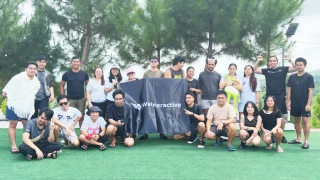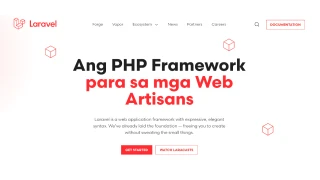- / Contents
- / The Warm Blanket of Ignorance: Comfort at a Cost

The Warm Blanket of Ignorance: Comfort at a Cost
The "warm blanket of ignorance" refers to the comforting but ultimately harmful practice of avoiding unpleasant truths, providing temporary relief from stress but leading to significant long-term consequences in various aspects of life and work.
In the hustle and bustle of daily life, it’s often tempting to wrap ourselves in the "warm blanket of ignorance." This metaphorical blanket provides temporary comfort, allowing us to avoid confronting difficult truths or dealing with unpleasant realities. However, while this state of blissful ignorance can shield us from immediate stress, it often leads to more significant long-term consequences. Let's explore the nuances of this phenomenon, its manifestations in various aspects of life, and its psychological effects.
Understanding the Warm Blanket of Ignorance
The phrase "warm blanket of ignorance" refers to the comforting but ultimately harmful practice of ignoring or avoiding unpleasant truths. It suggests that ignorance can provide a sense of security and peace, much like a cozy blanket on a cold day. Yet, just as a blanket cannot protect us from the harsh weather outside, ignorance cannot shield us from the realities that inevitably impact our lives.
Real-Life Examples
Ignorance manifests in numerous ways across different contexts. Here are a few examples:
- Climate Change: Many people choose to ignore scientific evidence of climate change, continuing with environmentally harmful practices. This avoidance offers temporary relief from the anxiety associated with climate crisis predictions but exacerbates the long-term impact on our planet.
- Health Issues: Some individuals avoid medical check-ups despite symptoms of illness. The immediate comfort of not knowing shields them from the stress of potential diagnoses, but it increases the risk of serious health complications.
- Financial Debt: Ignoring mounting debt can seem easier than confronting financial mismanagement. This short-term escape leads to long-term financial instability and increased stress as the problem grows.
- Workplace Dynamics: In the workplace, ignoring team conflicts or unethical practices might provide short-term peace. However, these issues often escalate, leading to a toxic work environment and reduced productivity.
Psychological Effects
The psychological impacts of ignorance are multifaceted, encompassing both positive and negative aspects:
Positive Effects
- Reduced Anxiety and Stress: Avoiding unpleasant information can provide immediate relief from anxiety and stress, creating a temporary sense of peace.
- Increased Happiness: Staying unaware of certain problems can lead to a more carefree and happy state of mind.
Negative Effects
- Delayed Coping and Problem-Solving: Ignorance prevents individuals from addressing issues effectively, often leading to more significant problems over time.
- Feelings of Guilt or Shame: When reality eventually confronts those who have remained ignorant, it can result in guilt or shame for not addressing the issue sooner.
- Increased Vulnerability: Ignorance can make individuals more susceptible to negative consequences due to a lack of preparedness or awareness.
- Cognitive Dissonance: Ignoring reality can lead to cognitive dissonance, causing psychological discomfort and internal conflict.
- Missed Opportunities for Growth: Avoiding challenges often means missing out on personal growth and development opportunities.
- Relationship Strain: In interpersonal relationships, ignorance can lead to misunderstandings and unresolved conflicts, straining the relationship.
Workplace Implications
The "warm blanket of ignorance" is particularly prevalent in workplace settings, where avoiding difficult issues can seem easier than confronting them. Here are some workplace examples:
- Ignoring Team Conflicts: Managers who ignore rising tensions among team members might avoid short-term stress, but this often leads to long-term anxiety and decreased team morale.
- Overlooking Ethical Violations: Employees who ignore unethical practices to avoid involvement might feel initial relief, but this can lead to guilt, cognitive dissonance, and severe consequences if the issue becomes public.
- Avoiding Feedback: Employees who avoid seeking feedback might escape immediate criticism but risk stagnation in their career growth and increased anxiety about their job security.
- Neglecting Professional Development: Ignoring opportunities for training and skill development can provide immediate ease, but it results in long-term fear and anxiety about job redundancy as industry standards evolve.
- Disregarding Workload Imbalance: Managers who ignore workload imbalances might avoid difficult conversations, but this leads to burnout, stress, and resentment among overworked employees.
- Ignoring Market Changes: Leadership that disregards emerging market trends might feel secure in the short term but faces a crisis when the company fails to adapt and loses market share.
- Avoiding Diversity and Inclusion Issues: Companies that ignore diversity and inclusion issues might avoid initial resistance but suffer from reduced employee engagement and a negative company culture.
- Overlooking Employee Well-Being: Ignoring signs of employee burnout and mental health issues can reduce the complexity of management in the short term but results in increased absenteeism and decreased productivity.
Alternative Terms and Metaphors
There are various terms, metaphors, and idioms that capture the essence of the "warm blanket of ignorance":
- Willful Blindness: Deliberately ignoring certain facts or realities.
- Blissful Ignorance: The state of being happy because one is unaware of certain problems.
- Head in the Sand: Refusing to acknowledge or deal with problems.
- Rose-Colored Glasses: Seeing things in an overly optimistic way.
- Comfort Zone: Staying within familiar and safe boundaries to avoid challenges.
- Bubble of Denial: Living in a self-created reality that excludes unpleasant truths.
- Turning a Blind Eye: Pretending not to see or acknowledge something.
- Sweeping Under the Rug: Hiding or ignoring problems instead of addressing them.
Conclusion
While the "warm blanket of ignorance" can provide short-term comfort and relief, it often leads to more significant negative consequences in the long run. Addressing and confronting challenges head-on, though initially uncomfortable, is crucial for personal growth, healthier relationships, and a more productive and harmonious work environment. Recognizing and shedding this metaphorical blanket can empower individuals and organizations to tackle issues proactively, leading to more sustainable well-being and success.
By understanding and addressing the allure of ignorance, we can foster a culture of awareness, responsibility, and proactive problem-solving, ultimately benefiting ourselves, our relationships, and our communities.












